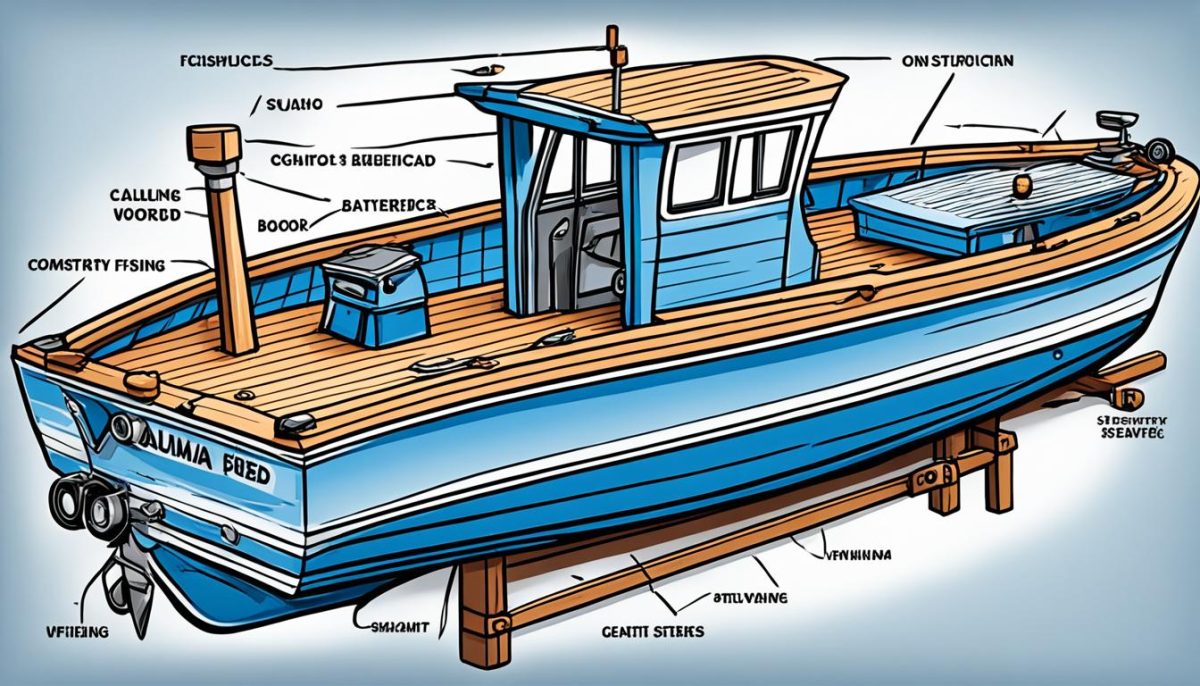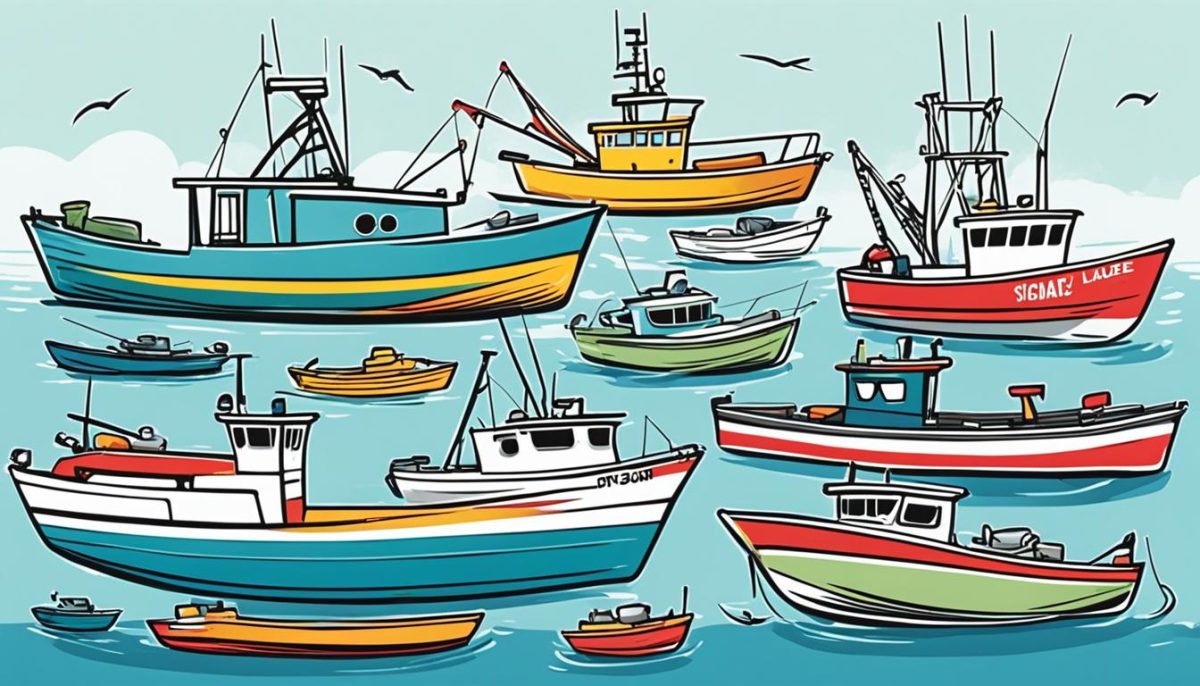As avid anglers and seasoned boaters, we’re often curious about the varying weights of fishing boats. Whether you’re in the market for your first vessel or simply want to understand the capabilities of different models, knowing the typical weight of a fishing boat is crucial. In this article, we’ll explore the surprising range of weights and dive into the key factors that influence a boat’s heft, helping you determine the right size and specifications for your specific needs.
From compact jon boats to hefty offshore cruisers, the weight of a fishing boat can span a wide spectrum. Understanding these differences is essential in ensuring your vessel can handle the water conditions, accommodate your gear, and meet your performance expectations. Join us as we unpack the complexities of fishing boat weights and equip you with the knowledge to make an informed decision for your next aquatic adventure.
Factors Influencing the Weight of a Fishing Boat
When it comes to the weight of a fishing boat, a wide array of factors come into play. Understanding these key elements can provide valuable insights into how a boat’s overall tonnage is determined. Let’s explore the two primary considerations that affect the weight of a fishing vessel: boat type and purpose, as well as the construction materials used in its manufacture.
Boat Type and Purpose
The type and intended purpose of a fishing boat have a significant impact on its weight. Recreational fishing vessels, designed for leisure activities, tend to be lighter and more agile compared to their larger, commercial counterparts. These commercial fishing boats, built for sustained offshore operations, often carry heavier equipment, engines, and storage capacity, resulting in a higher overall weight.
For instance, a small, lightweight skiff used for coastal fishing may weigh only a few hundred pounds, while a sizable trawler equipped for deep-sea expeditions can easily exceed 50 tons. The specific design and features of the boat, such as the hull, deck layout, and onboard systems, all contribute to determining its final weight.
Construction Materials
The choice of construction materials is another crucial factor that affects the weight of a fishing boat. Traditionally, wooden boats were commonly used, but modern advancements have introduced a range of alternative materials, each with its own advantages and impact on the overall weight.
- Fiberglass-reinforced plastic (FRP) boats: These are known for their lightweight and corrosion-resistant properties, making them a popular choice for recreational and smaller commercial vessels.
- Aluminum boats: Lightweight and durable, aluminum boats are well-suited for freshwater fishing and inland waterways, where weight is a significant consideration.
- Steel boats: Heavier but exceptionally sturdy, steel-hulled boats are often employed in commercial fishing operations, particularly for offshore and deep-sea ventures.
The selection of materials, combined with the specific design and features of the boat, ultimately determines its overall weight, influencing factors such as payload capacity, fuel efficiency, and overall performance.

By understanding the interplay between boat type, purpose, and construction materials, we can gain a comprehensive understanding of the factors that contribute to the weight of a fishing boat. This knowledge is crucial in making informed decisions about vessel selection, maintenance, and operational planning.
How Much Does A Fishing Boat Weigh
Fishing boats come in a wide range of sizes and weights, making it challenging to provide a single definitive answer. However, we can examine some general weight ranges to give you a better idea of what to expect. The average fishing boat weight can vary significantly depending on the specific model, features, and intended use.
Smaller recreational fishing boats, such as Jon boats or aluminum boats, can weigh as little as 500 pounds. These lightweight vessels are perfect for inshore fishing or calm waters. On the other hand, larger offshore fishing boats can reach weights of 10,000 pounds or more. These heavy-duty boats are designed to handle the demands of deep-sea fishing and harsh weather conditions.
The typical fishing boat weight range for a family-sized fishing boat often falls somewhere between 2,000 to 4,000 pounds. This weight class includes popular models like bass boats, center console boats, and walkaround cabin boats. These versatile vessels strike a balance between portability, stability, and fishing capabilities.
| Boat Type | Typical Weight Range |
|---|---|
| Smaller recreational fishing boats (Jon boats, aluminum boats) | 500 – 1,500 pounds |
| Family-sized fishing boats (bass boats, center console, walkaround cabin) | 2,000 – 4,000 pounds |
| Larger offshore fishing boats | 6,000 – 10,000 pounds |
It’s important to note that these are just general guidelines, and the actual weight of a fishing boat can vary significantly based on factors such as the hull material, engine size, and onboard equipment. Knowing the common fishing boat weights can help you make informed decisions when purchasing or transporting your vessel.

“Choosing the right fishing boat for your needs is crucial, and understanding the typical weight range can make all the difference in ensuring a safe and enjoyable experience on the water.”
Importance of Knowing Your Boat’s Weight
As fishing enthusiasts, understanding the importance of knowing our boat’s weight is paramount. This critical information helps us determine the appropriate towing and hauling equipment, ensuring our vehicle has the necessary capacity to transport our vessel safely. Additionally, being aware of our boat’s weight allows us to calculate its maximum load capacity, a crucial factor in maintaining the safety and stability of our fishing trips.
Moreover, knowing our boat’s weight assists us in executing proper trailering, launching, and maintenance procedures. This knowledge empowers us to make informed decisions that contribute to the longevity and performance of our fishing vessel. By staying informed about our boat’s weight, we can optimize our boating experience, mitigating potential issues and enjoying a seamless, worry-free time on the water.
In the world of recreational fishing, where safety and enjoyment are paramount, understanding the importance of knowing our boat’s weight is a crucial step towards a more rewarding and fulfilling boating experience. By embracing this knowledge, we can confidently navigate the waters, secure in the knowledge that our vessel is well-equipped and properly maintained to support our fishing adventures.

